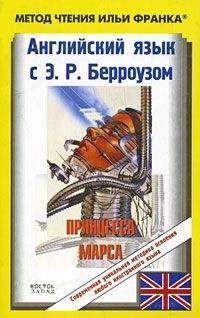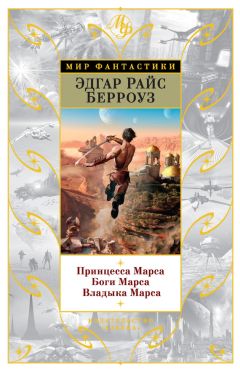debouche [dI'bautS], enter ['entq], consternation ["kOnstq'neISn]
I had forged ahead for perhaps a mile or more without hearing further sounds, when the trail suddenly debouched onto a small, open plateau near the summit of the pass. I had passed through a narrow, overhanging gorge just before entering suddenly upon this table land, and the sight which met my eyes filled me with consternation and dismay.
The little stretch of level land was white with Indian tepees (небольшая полоска равнины была белой от индейских вигвамов; tepee — вигвам), and there were probably half a thousand red warriors (и там было примерно полтысячи краснокожих воинов) clustered around some object near the center of the camp (столпившихся у какого-то предмета возле центра лагеря; to cluster — собираться группой). Their attention was so wholly riveted to this point of interest (их внимание было настолько полно сосредоточено на интересующем /их/ предмете; to rivet — сосредоточивать внимание; point — точка; цель) that they did not notice me (что они не заметили меня), and I easily could have turned back into the dark recesses of the gorge (и я легко мог повернуть назад в темные глубины ущелья; recess — укромный уголок) and made my escape with perfect safety (и спастись, не подвергаясь никакому риску = в полной безопасности; escape — бегство, побег; to make escape — спасаться; with safety — без риска; safety — безопасность; сохранность). The fact, however, that this thought did not occur to me until the following day (тот факт, однако, что эта мысль пришла ко мне только на следующий день; to occur— случаться; приходить на ум) removes any possible right to a claim to heroism (исключает всякое возможное право претендовать на героизм; to remove — передвигать; удалять; claim — требование, притязание) to which the narration of this episode might possibly otherwise entitle me (на который повествование об этом эпизоде могло бы в ином случае, возможно, дать мне право; narration — рассказ, повествование; otherwise—иначе; в других отношениях; to entitle — давать право).
warrior ['wOrIq], recess [rI'ses], heroism ['hero(u)Izm]
The little stretch of level land was white with Indian tepees, and there were probably half a thousand red warriors clustered around some object near the center of the camp. Their attention was so wholly riveted to this point of interest that they did not notice me, and I easily could have turned back into the dark recesses of the gorge and made my escape with perfect safety. The fact, however, that this thought did not occur to me until the following day removes any possible right to a claim to heroism to which the narration of this episode might possibly otherwise entitle me.
I do not believe that I am made of the stuff which constitutes heroes (я не думаю, что я создан из материала, из которого создаются герои = который составляет героев; to constitute — составлять) because, in all of the hundreds of instances (потому что из всех сотен случаев; instance — пример, частный случай) that my voluntary acts have placed me face to face with death (когда мои добровольные действия ставили меня лицом к лицу со смертью; voluntary — добровольный) I cannot recall a single one (я не могу вспомнить ни одного) where any alternative step to that I took (когда /возможность/ любого другого действия, чем то, которое я предпринял; step — шаг; действие) occurred to me until many hours later (приходила мне на ум лишь много часов спустя; to occur — приходить в голову). My mind is evidently so constituted (мой разум, очевидно, устроен таким образом) that I am subconsciously forced into the path of duty (что мое подсознание принуждает меня следовать чувству долга; to follow the path of duty — следовать долгу: «следовать тропе долга») without recourse to tiresome mental processes (не прибегая к утомительным умственным процессам;recourse — обращение за помощью; tiresome — надоедливый, утомительный; to tire — утомлять/ся/). However that may be (как бы там ни было), I have never regretted that cowardice is not optional with me (я никогда не сожалел, что трусость не является предметом выбора для меня; option— предмет выбора;optional— избирательный, возможный /для выбора/).
recourse [rI'kLs], constitute ['kOnstItjHt], subconsciously [sAb'kOnSqslI], cowardice ['kauqdIs]
I do not believe that I am made of the stuff which constitutes heroes, because, in all of the hundreds of instances that my voluntary acts have placed me face to face with death, I cannot recall a single one where any alternative step to that I took occurred to me until many hours later. My mind is evidently so constituted that I am subconsciously forced into the path of duty without recourse to tiresome mental processes. However that may be, I have never regretted that cowardice is not optional with me.
In this instance I was, of course, positive (в эту минуту я был, конечно, убежден; positive — несомненный; уверенный) that Powell was the center of attraction (что Пауэлл был центром притяжения; attraction — притяжение, тяготение), but whether I thought or acted first I do not know (но что я делал прежде всего — думал или действовал — я не знаю), but within an instant from the moment the scene broke upon my view (но через мгновение после того, как эта сцена предстала у меня перед глазами; to break upon — предстать) I had whipped out my revolvers (я выхватил свои револьверы; to whip out — выхватить /оружие/) and was charging down upon the entire army of warriors (и атаковал целую армию воинов; to charge — воен. атаковать), shooting rapidly, and whooping at the top of my lungs (быстро стреляя и издавая крики во всю силу своих легких; top — верхушка, высшая степень; to whoop — выкрикивать, издавать вопли). Single-handed, I could not have pursued better tactics (в одиночку я не мог бы придерживаться лучшей тактики;single-handed — однорукий; работающий без посторонней помощи; to pursue — преследовать; следовать неотступно за; гнаться; преследовать/цель/; следовать намеченному курсу), for the red men, convinced by sudden surprise (так как краснокожие, убежденные из-за неожиданности = внезапной неожиданности) that not less than a regiment of regulars was upon them (что на них /напал/ не менее чем полк регулярной армии; regiment — полк), turned and fled in every direction for their bows, arrows, and rifles (повернулись и побежали во всех направлениях = побежали врассыпную за своими луками, стрелами и ружьями; to flee — убегать, спасаться бегством).
scene [si: n], pursue [pq'sju: ], regiment ['reGImqnt]
In this instance I was, of course, positive that Powell was the center of attraction, but whether I thought or acted first I do not know, but within an instant from the moment the scene broke upon my view I had whipped out my revolvers and was charging down upon the entire army of warriors, shooting rapidly, and whooping at the top of my lungs. Single-handed, I could not have pursued better tactics, for the red men, convinced by sudden surprise that not less than a regiment of regulars was upon them, turned and fled in every direction for their bows, arrows, and rifles.
The view which their hurried routing disclosed (зрелище, которое предстало передо мной /в результате/ их поспешного беспорядочного бегства; to rout — разбивать наголову; обращать в беспорядочное бегство) filled me with apprehension and with rage (привело меня в состояние страха /за товарища/ и ярости = заполнило меня; apprehension — опасение). Under the clear rays of the Arizona moon lay Powell (под яркими лучами Аризонской луны лежал Пауэлл), his body fairly bristling with the hostile arrows of the braves (/при этом/ его тело буквально ощетинилось от вражеских стрел индейских воинов; fairly — совершенно, явно; to bristle — ощетиниться; bristle— щетина;brave — храбрец; индейский воин). That he was already dead I could not but be convinced (в том, что он уже был мертв, не было никакого сомнения: «я не мог быть кроме как убежденным»), and yet I would have saved his body from mutilation at the hands of the Apaches (и все же я должен был попытаться спасти его тело от надругательства от рук Апачей; to mutilate — калечить, уродовать) as quickly as I would have saved the man himself from death (точно так же, как я бы спас и самого человека от смерти; quickly — уст. точно).
routing ['rautIN], apprehension ["xprI'henSn], mutilation ["mjHtI'leISn]
The view which their hurried routing disclosed filled me with apprehension and with rage. Under the clear rays of the Arizona moon lay Powell, his body fairly bristling with the hostile arrows of the braves. That he was already dead I could not but be convinced, and yet I would have saved his body from mutilation at the hands of the Apaches as quickly as I would have saved the man himself from death.
Riding close to him I reached down from the saddle (подъехав вплотную к нему, я потянулся с седла; to reach — протягивать руку), and grasping his cartridge belt (и, ухватив его патронташ; cartridge — патрон; cartridge belt — патронташ), drew him up across the withers of my mount (взвалил его на холку моей лошади; withers — холка /у лошадей/,загривок; mount — лошадь, мул и т. п., приученные ходить под седлом). A backward glance convinced me that to return by the way I had come (взгляд назад убедил меня в том, что вернуться тем же путем, которым я приехал; backward— обратный) would be more hazardous than to continue across the plateau (будет более рискованно, чем продолжать /путь/ по равнине; hazardous — рискованный, опасный), so, putting spurs to my poor beast (поэтому, пришпорив мое бедное животное; spur — шпора; to put spurs — пришпоривать), I made a dash for the opening to the pass (я помчался к проходу на перевал; dash — стремительное движение; to make a dash — броситься) which I could distinguish on the far side of the table land (который я мог разглядеть на дальней стороне равнины; to distinguish — различить; разглядеть).
backward ['bxkwqd], grasp [grRsp], hazardous ['hxzqdqs], distinguish [dIs'tINgwIS]
Riding close to him I reached down from the saddle, and grasping his cartridge belt, drew him up across the withers of my mount. A backward glance convinced me that to return by the way I had come would be more hazardous than to continue across the plateau, so, putting spurs to my poor beast, I made a dash for the opening to the pass which I could distinguish on the far side of the table land.
The Indians had by this time discovered (индейцы к этому времени обнаружили) that I was alone (что я был один) and I was pursued with imprecations, arrows, and rifle balls (и вслед за мной полетели: «последовали» проклятия, стрелы и пули из винтовок; imprecation — проклятие; ball — шар; пуля). The fact that it is difficult to aim anything but imprecations accurately by moonlight (тот факт, что трудно нацелить что-нибудь /точно/, кроме проклятий, при лунном свете; to aim — целиться; aim — цель) that they were upset by the sudden and unexpected manner of my advent (что они были обескуражены внезапным и неожиданным способом моего появления; to upset — огорчать; advent — прибытие, приход), and that I was a rather rapidly moving target (и то, что я был достаточно быстро движущейся мишенью; target — мишень, цель) saved me from the various deadly projectiles of the enemy (спасло меня от многих смертельно опасных пуль; projectile — воен. снаряд, пуля; various — различный, разный, разнообразный; многие, разные) and permitted me to reach the shadows of the surrounding peaks (и позволило мне достичь теней окружающих вершин) before an orderly pursuit could be organized (прежде чем можно было организовать правильную погоню; order — порядок; orderly — систематический, упорядоченный, организованный; правильный).



